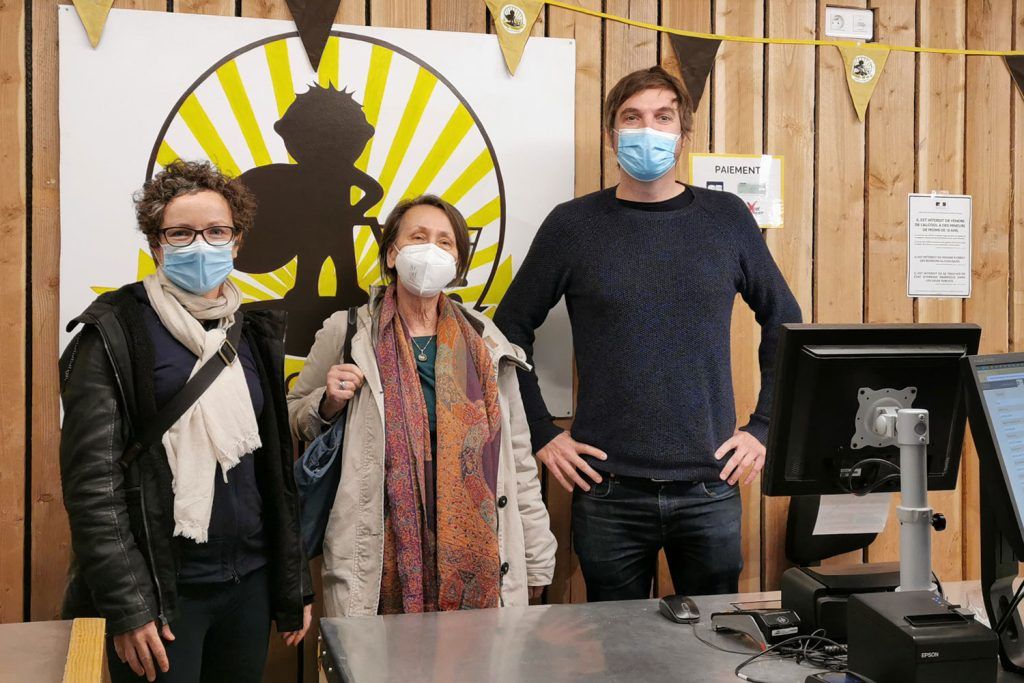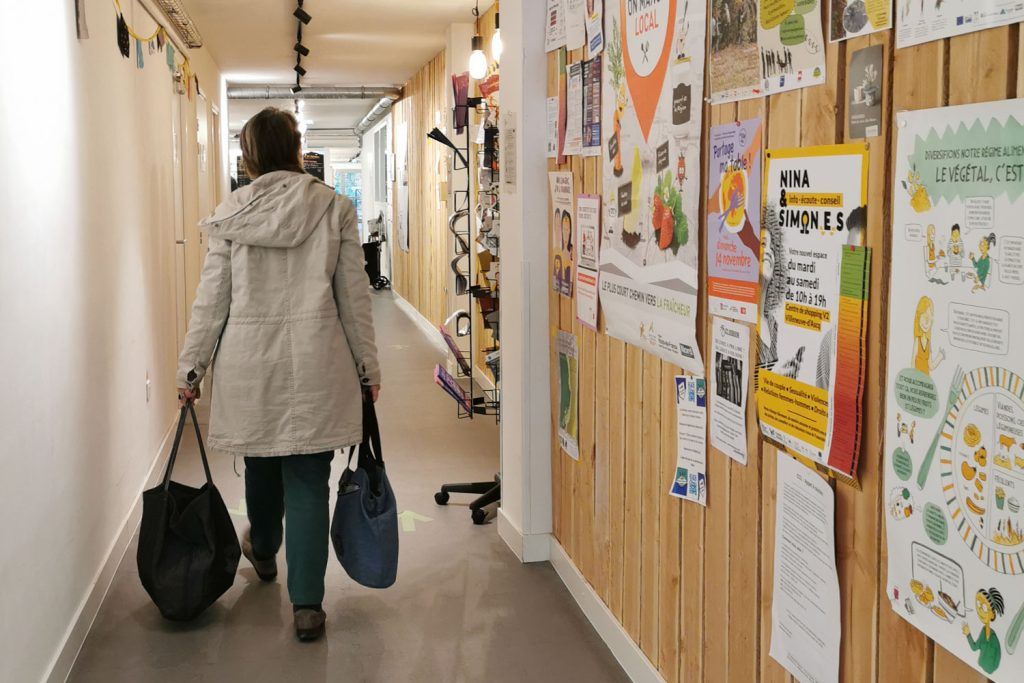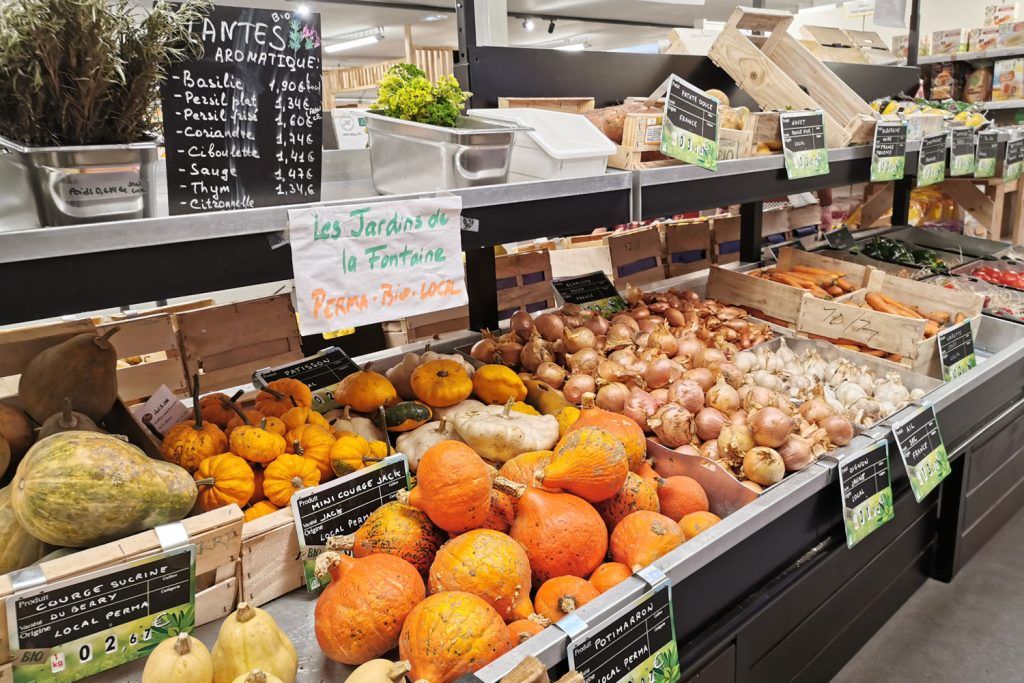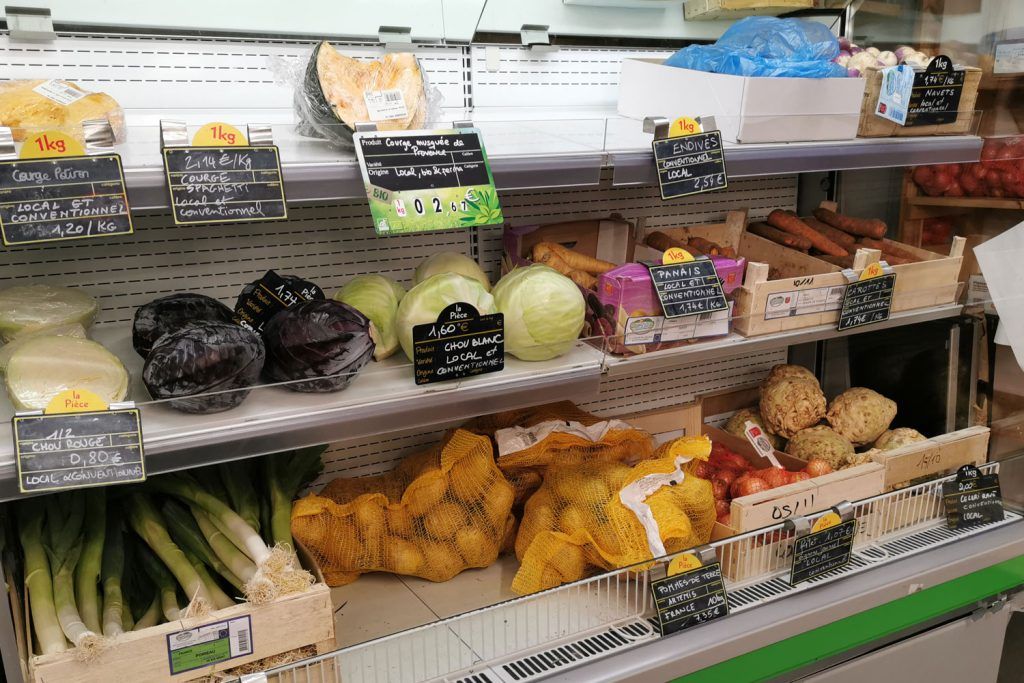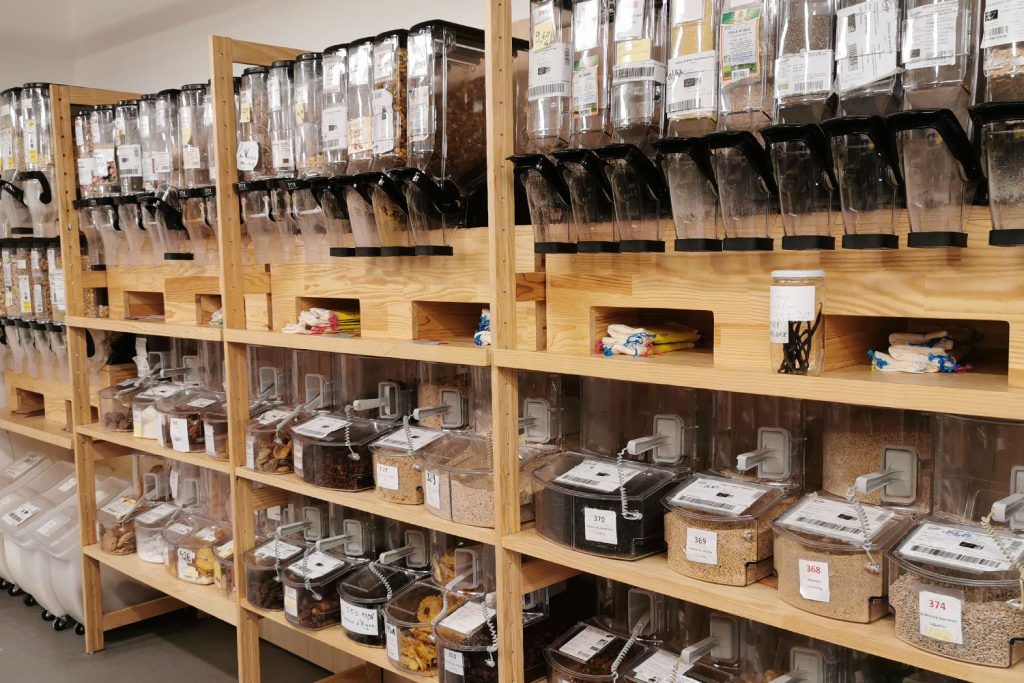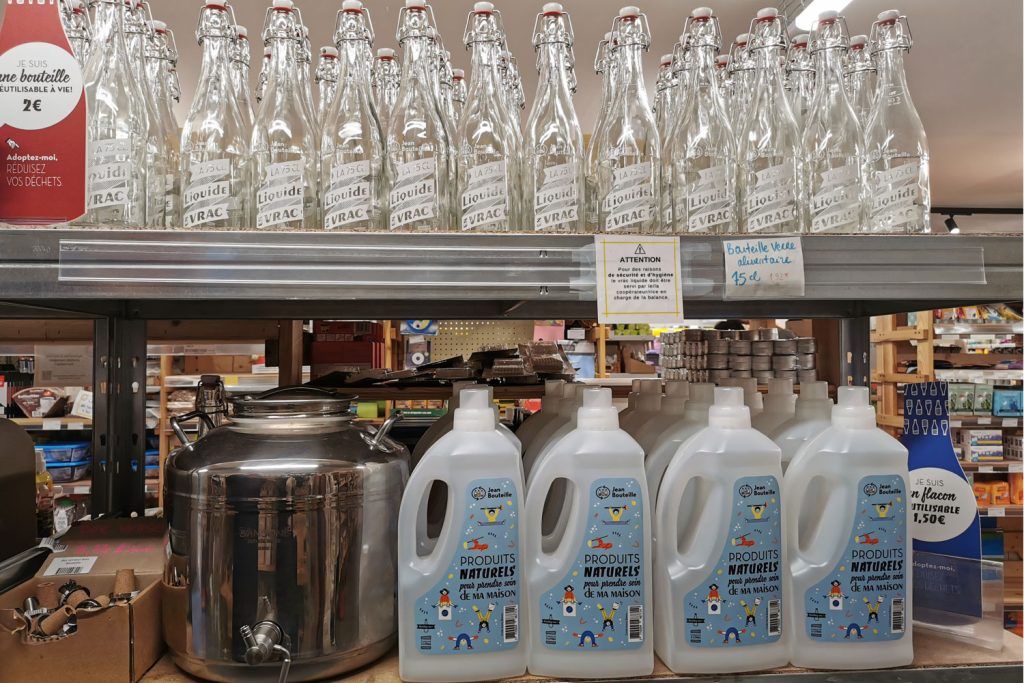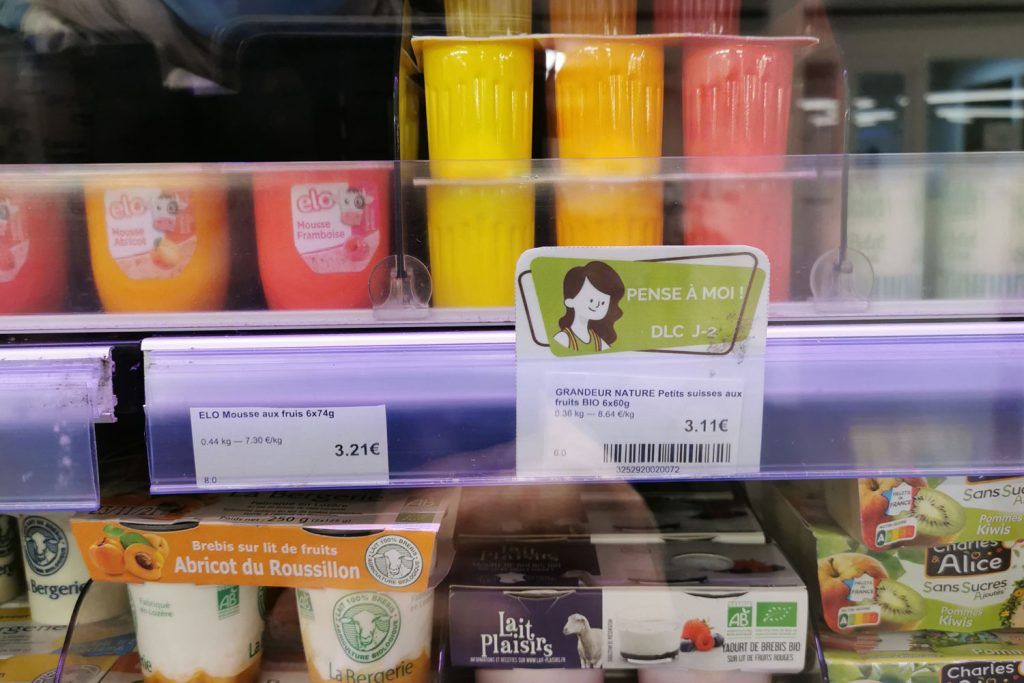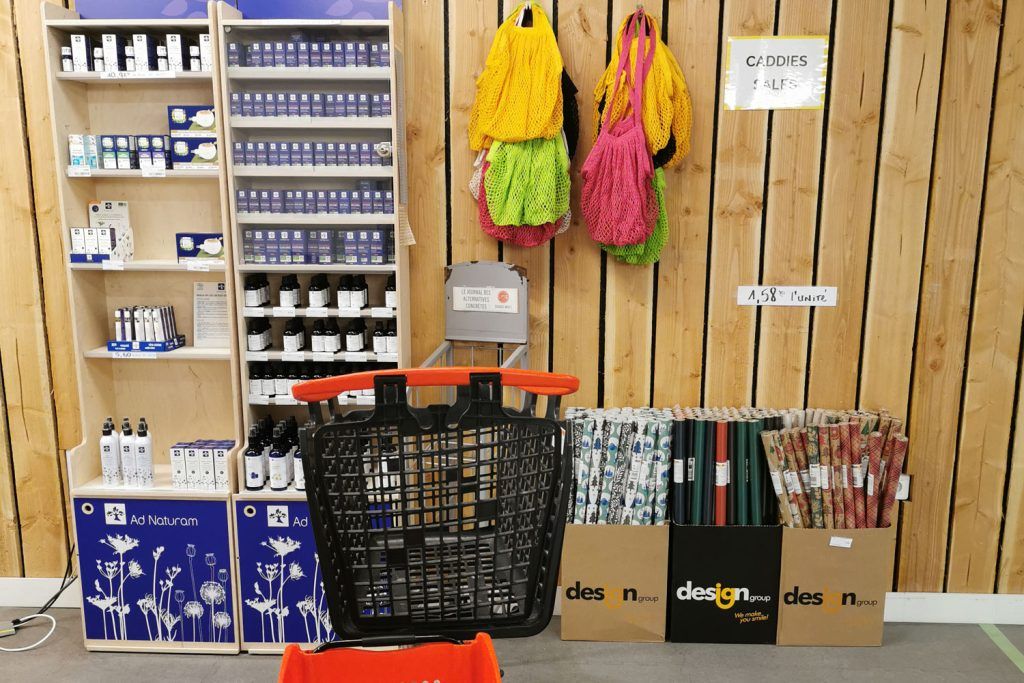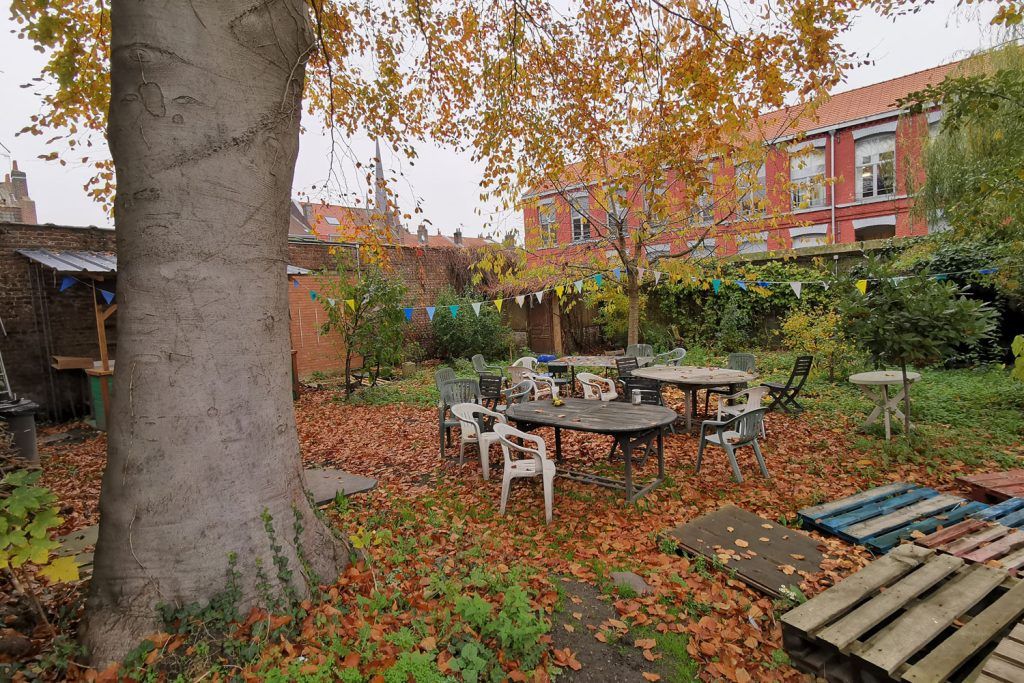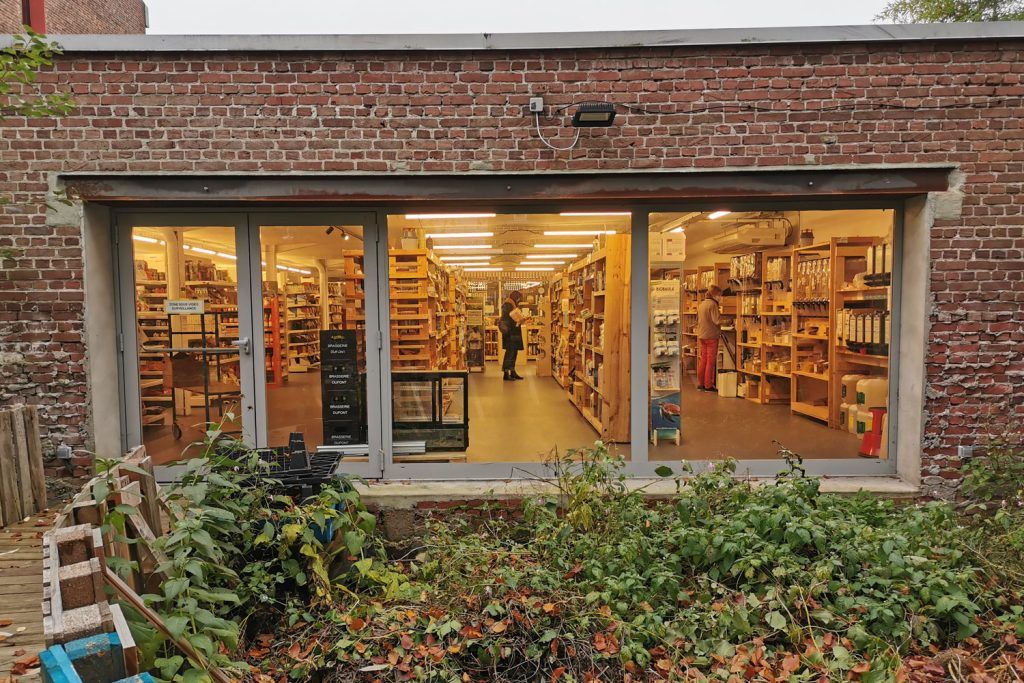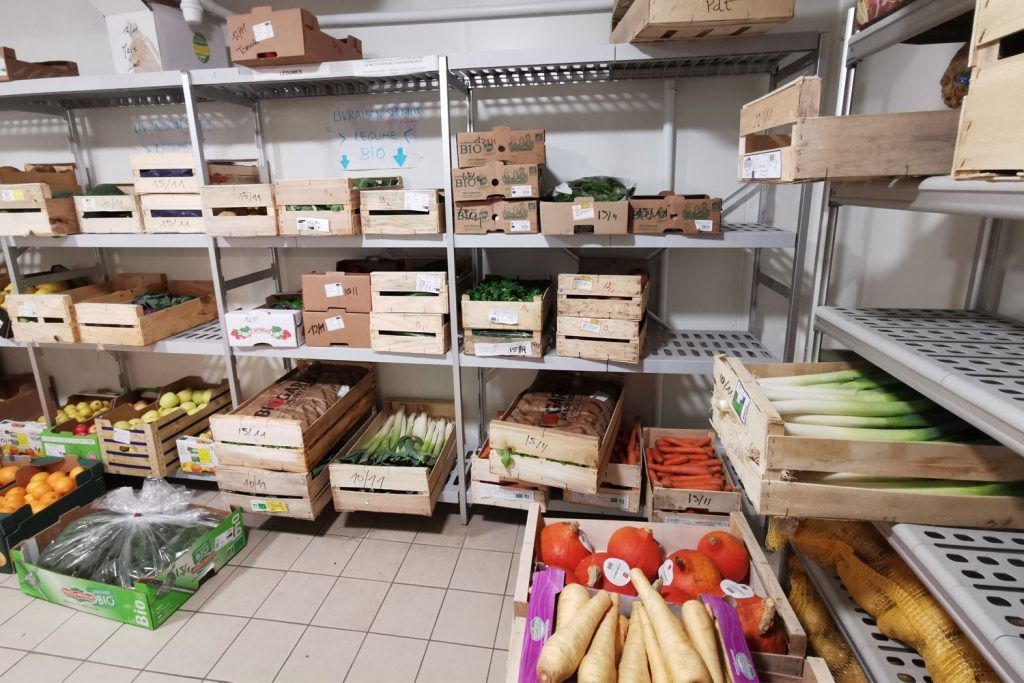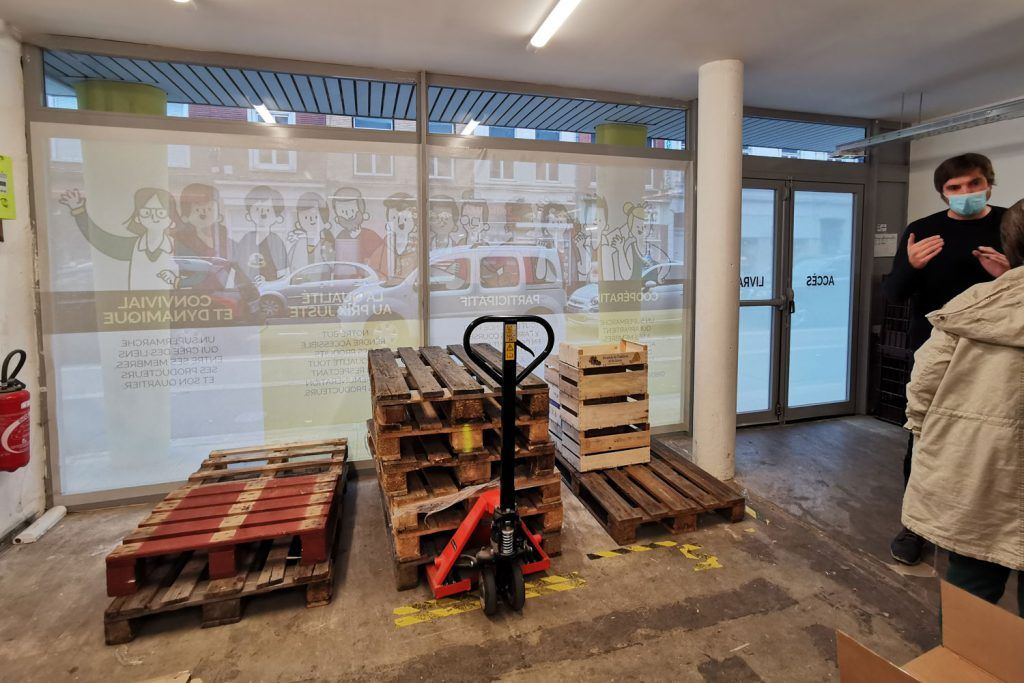This learning journey is part of the project »Pilot Mitmach Supermarkt«.
After Paris, the learning journey continues to Lille to SuperQuinquin – the supermarket where you are the hero. There we meet Nicolas Philippe, the manager. He takes time to guide us through the first cooperative supermarket in Lille – a report.
It is quite cold when we leave the station. The area seems a bit dreary, the shops on the ground floor are partly empty – it is a grey November day. We turn into Rue Pierre Legrand and there we are: The naughty boy shines with cape and shopping trolley as signet above the shop: »SuperQuinquin – participatif e coopératif«. Half the façade is taped up, because deliveries are also being made next to the entrance.
We step through the sliding door and check in. It is a long corridor into the shop, past the cash registers, with glimpses into the preparation room. The right wall is wood-panelled: Here we read community offers from the neighbourhood, as well as requests for new products, which are hung up here. The three cash registers are also wood-panelled.
4,500 products – also loose and liquid goods
Right after the cash registers is Nicola’s office with a good overview of the sales floor: at the beginning SuperQuinquin had 500 products, today there are 9 times as many. At first they had very few fruits and vegetables. The salesroom occupies a rectangular area. What is immediately noticeable is a somewhat low ceiling and wooden shelves – mostly built by members themselves. Everything is very orderly, only the somewhat crooked bread shelf is a bit out of line.
The driving force is fruit and vegetables, which attract people to the supermarket. Quality is very important for these fresh products.,
Nicolas explains to us. There are three cold storage rooms for the different temperature requirements of the products.
Some things can be bought unpackaged: Almonds, hazelnuts, red lentils and the like can be filled from dispensers. Weighing is done by a trained member – this has proven to be very practical.
There are also liquid goods for bottling: Olive oil, apple cider vinegar, shampoo and much more can be bottled. There is only one size of bottle, otherwise it gets complicated. These bottles are available for purchase and members clean them themselves and bring them back for re-filling.
They have now added a conventional product to the organic vanilla yoghurt, and now generally always offer a conventional product in addition to the organic products – because the members from the area do not have so much money. Now it works better, because every member should be able to buy everything they need here. For milk, yoghurt, cold cuts and meat, there are refrigerated shelves with doors along one wall.
Signs are provided for the imminent expiry of products. There are no discounts. No goods at the checkout either – just a locked shelf with high-quality oils, wrapping paper for Christmas and reusable bags.
I wish for …
Each member can request products. The assortment group then researches them. Sometimes the products already existed, they were probably not found, or the desired products appear on the shelf but are not bought. In the case of a chocolate from Brittany, however, it worked very well: good quality at a reasonable price – a member had discovered the chocolate elsewhere and suggested it.
An average shopping basket at SuperQuinquin is around 50 euros. In a month, members shop for an average of 150 euros. The annual turnover in 2020 was around 1.8 million, the target was 2.0 million euros – they are currently still making losses.
Be and stay involved
Half of the members come from the area around the supermarket, the other half from the city centre and the wider surroundings. SuperQuinquin is located in the district »Fives«, the former industrial suburb is in transition after the factories closed down. About 19,000 people live in Fives, in the east of Lille. About 230,000 people live in the big city in the north of France – Brussels is close, Paris twice as far away.
The Coopérative SuperQuinquin currently has 1,050 members. Some members who no longer come to shop keep their cooperative share – turning them from active to financially supporting members without a vote.
New members come through word of mouth and social media. In the beginning, they also had journalists there and were on TV. This has made SuperQuinquin known beyond its networks. The new members are invited to a welcome meeting: One and a half hours in which everything is explained to them. Another meeting is currently being planned after the new members have had their first shift.
Co-decide
Currently, products at SuperQuinquin have a 23 per cent mark-up, with only fruit, vegetables and bulk products having a 26 per cent mark-up, as there is more waste and loss.
At the last general assembly, the members voted in favour of increasing the mark-up to 23 and 26 percent respectively. 60 percent of the members present voted in favour. This was necessary because the supermarket is not yet covering its costs: The number of members is stagnating and there is also a lack of car parking spaces.
Beyond that, the members do not decide much at the general assembly. It is rather the place where they can inform themselves and discuss: Where the management explains why they do things and how they do them. Nicolas would like to involve the members more. Where and how is still in the making.
A general assembly is held once a quarter. It is not very popular online. In presence, a large room or hall is rented for this purpose: About 150 members come to the general meetings.
Five shifts per day
About 40 people work in the supermarket every day. They work in five shifts: During the early morning or evening shifts there are 10 people in a shift, during the daytime rather less. A shift lasts 2 hours and 45 minutes.
The shifts, as well as the flow of goods, are managed via Odoo: This is an open source software that can be used to plan company resources. By early 2022, it is planned that scheduling and changing shifts will become easier: If members cannot take their shift, they can take another shift and register the previous one as »unoccupied« – up until now, only one-to-one shift swaps with another member were possible. In the beginning, many shifts were exchanged via e-mail and telephone, which required a lot of staff.
Those who cannot come to work and do not take care, i.e. sign out or swap, have to work two make-up shifts. If members are in the red with too many shifts, they often leave the Coopérative.
Otherwise, almost everything on site is done on paper.
Supermarket with a garden
Daylight enters the supermarket from the back and you have a nice view into the garden and from the garden into the market while shopping. The garden is a bit wild, but quite spacious. Nicolas leads us through the garden to the adjoining house, which is used for meetings.
The fire safety requirements made it necessary to purchase the garden and the rear building. So that there is a second escape route for the members who are shopping and working.
They needed 1,000,000 euros for this: they asked the members to provide 200,000 euros. They got the remaining 800,000 euros from the bank. However, when the loan agreement was to be signed with the first bank, it backed out. It worked out with the next bank.
In addition, the Coopérative SuperQuinquin was supported by the region and the city. In total, they received 200,000 euros on top of the million, partly as an interest-free loan and money from a private fund for the social economy – so in the end they had more money than they needed.
Why did Superquinquin come to Fives?
They deliberately chose the Fives district and looked for a place here: Because there were no organic shops here and many premises were empty. It is a poorer area. At the beginning there were five of them, four volunteers, only Nicolas got paid.
The first 3-5 months you have to repeat everything again every 2h 45 min. After 5 months it will have settled in.,
Nicolas remembers the time after the opening. Today they are six employees, five of them full-time – including Nicolas. As manager, he earns a little more than the others.
Grow and remain independent
Nicolas wants to spread the cooperative supermarket concept and set up one or two more markets in Lille. We ask him what he will pay special attention to:
- A supermarket needs generous storage space.
- A supermarket in Lille needs car parking, because Lille is not Paris or Vienna.
- A supermarket should start big. It is risky to start too small. The bigger you start, the better: better volume or turnover means better prices and better choice for members.
Another supermarket could also start with fewer members: 800 or 1,000 – because an open supermarket attracts more people. These cooperative supermarkets should be independent and cooperate with each other: The members are assigned to one supermarket, where they also work – but maybe they can also shop in the others. In any case, Nicolas would like the employees to work for the other markets as well.
After our visit, Nicolas met with Tom Boothe, President of »Coopérative La Louve« in Paris on Friday – there is a lively exchange here.
This article appeared in the MILA Mitmach Supermarkt news at the beginning of January 2022.
